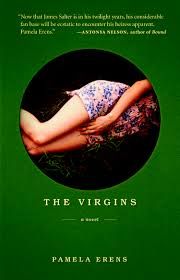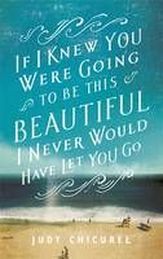
All eyes are on Aviva Rossner as she arrives at the prestigious Auburn Academy in the late 1970s exuding glamour and youthful sexuality. Bruce Bennett-Jones is mortified when she snubs his feeble advances and takes up with the unlikely Seung Jung. The couple flaunt their relationship, evoking the envy and fascination of their classmates and irritation among their teachers: this is a fictional school where rules may be broken but not in such a blatant manner. But underneath the veneer of almost-adult confidence, the pair are struggling. Aviva, in love with being loved, is terrified of the loss of control that could come with indulging her appetites; Seung, gentle and caring, can’t understand her reluctance to join him in his experiments with drugs. But it’s sex that proves their downfall: as every fumbling attempt ends in failure, they blame themselves, and the stakes are heightened for their next encounter.
It seemed strange at first that the young lovers’ story should be narrated by the outsider, Bruce, leading to some convoluted rationalisations of how he might be in a position to describe their private interactions. But when we discover his role in the tragic denouement, it seems perfectly apt, and his behaviour has lasting repercussions.
Published by John Murray who kindly provided my review copy, The Virgins is Pamela Erens’ second novel: a story of loneliness, envy and betrayal, and the vulnerability that lies beneath the veneer of adolescence posturing.

The full title – If I Knew You Were Going to Be This Beautiful I Never Would Have Let You Go – is something of a mouthful, but perfectly apt for the novel’s emotional core of yearning, nostalgia and loss. Yet Katie reveals little of the process she is undergoing until towards the end. A typical adolescent, her focus is on the superficial: clothes, alcohol, the various teenage tribes and chatting at Eddy’s over a (to me) mysterious egg cream (and, at this distance, I wanted to slap her hand every time she went to light another cigarette). Her tales are littered with characters looking to leave Elephant Beach; if not for a better life, then for something different. The town’s decay is frequently referenced, yet Katie is fiercely attached to the place. In case my tardiness in grasping this deeper meaning was the author’s intention rather than due to a blind spot of my own, I’d better issue a spoiler alert – Katie, adopted as an infant, is drawn to the grunge because that’s where her fantasy of her teenage birth-mother resides. Adolescence is about letting go of childhood yet for Katie, and for some others of her peer group, it’s hard to let go of something you haven’t quite had.
Judy Chichurel’s debut, This Beautiful, is published today by Tinder Press – thanks to them for my proof copy. Still haunted by this novel, I’m looking forward to checking my reading against others’ reviews.
I’ve written several short stories featuring adolescents, which can be accessed via my virtual annethologies page, but these novels, and especially This Beautiful, has prompted some musings on how the theme is addressed in my forthcoming debut, Sugar and Snails. Unlike Katie, Diana is ahead of her peers in leaving her home town behind. Yet, psychologically, even in middle age there’s a part of her still stuck in adolescence; perhaps she hasn’t properly mourned the part of her she prematurely let go. Something to ponder as I go through the edits; what about you? Are you drawn to tales of troubled teenagers as a reader or writer?





















 RSS Feed
RSS Feed





















